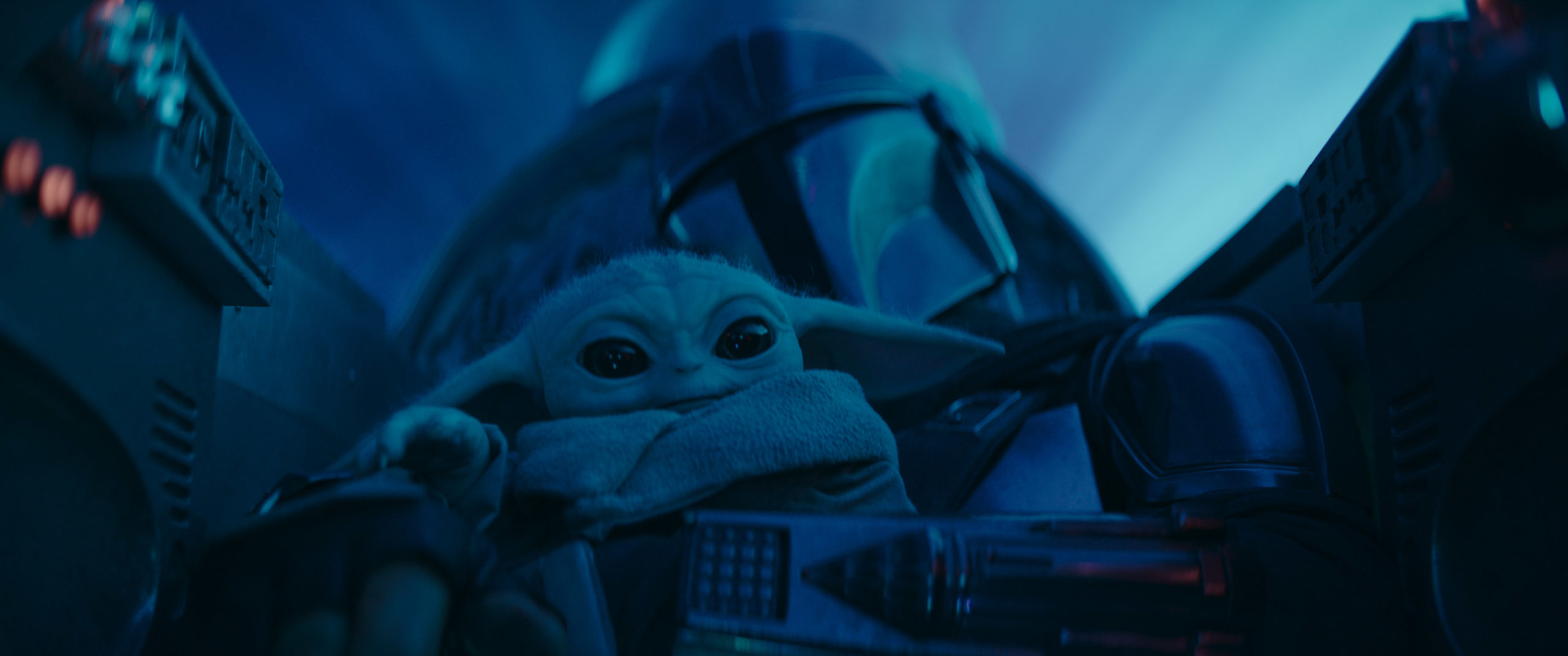
Editor’s Note: This review is as spoiler-free as possible. We will run weekly coverage that dives deep into each episode’s mysteries and surprises.
Moon Knight represents something of a shift for the Marvel Cinematic Universe. It is the first Marvel project on Disney+ that feels untethered from the rest of the MCU. It’s a liberating feeling. WandaVision, The Falcon and The Winter Soldier, and Hawkeye grappled with the consequences of Avengers: Infinity War and Avengers: Endgame. Loki carried the weight of introducing the concept of the multiverse to the masses. What If…was quite directly a riff on existing Marvel stories. Nearly all were burdened with introducing long term new characters – likely future Young Avengers or Thunderbolts – into the broader Marvel framework in addition to servicing the titular characters.
Enter Moon Knight. Through four episodes, the show feels like a real tonal evolution for the MCU. Steven Grant’s – or is it Marc Spector’s? – internal struggles are the show’s primary driver. Shifting from the typical Marvel origin story narrative that sees a hero come to embrace his or her purpose, Steven Grant is a character trapped by circumstances he can barely understand. Comic fans will know, and the show slowly reveals, that the show’s titular hero is essentially indentured to Khonshu, a Marvel version of the Egyptian moon god Khonsu. Here Khonshu, voiced perfectly by F. Murray Abraham, takes on a needling and constant voice-in-the-head role not all that different from the symbiote’s deployment in Sony’s Venom films. Steven Grant is a portrait of a man who is fractured by circumstances outside his control – he is prone to sleep walking and losing large swaths of time. He is unable to keep basic schedules and is forced to endure an exacting self-imprisoning bedtime routine to make sure he has not wandering off in his sleep yet again.

Moon Knight, as a character, has seen his canon shift massively across different eras. Marc Spector has always been the primary vehicle for the character, a soldier who dies in a temple of Khonshu and finds himself resurrected in some form of servitude to the Egyptian god. The mental health element has been played numerous ways over the years, but his body always seemed to “host” other identities including Steven Grant, a Bruce Wayne derivative playboy, and Jake Lockley, a street-smart cabby. The character has been flexible to meet the ambitions of how different authors have approached the character. Brian Michael Bendis’ run saw Moon Knight act as something of a fanboy for Captain America, Wolverine, and Spider-Man, crafting his own technology to emulate them as the heroes became voices in Marc Spector’s head. Warren Ellis recast the hero as a street level detective while Jeff Lemire saw his multiple identities as more of a mental health issue.
This canonical flexibility benefits the creators, as it did with Shang-Chi and the Legend of the Ten Rings. When a character has existed with such a fluid backstory, it’s easy to modify the specifics to best suit the needs of the TV format. The show makes a significant shift in the early going by focusing on the Steven Grant identity instead of the Marc Spector one. The Grant role itself is reconstituted from a wealthy businessman – perhaps the most done to death archetype in this era of superhero storytelling – to a nebbish museum worker, a gift shop clerk who can’t even earn his way into tour guide duty. The change renders Grant uniquely ill prepared to deal with the gaps in time and memory that occur in his life, but also gives the audience a protagonist well equipped to understand the various mythology that informs the story telling.

Oscar Isaac (Star Wars: The Last Jedi, Inside Llewyn Davis) is pitch perfect casting in the role. The difference between his Grant and his Marc Spector is immediately apparent in body language and expression above and beyond Isaac’s strong dialect work. Isaac is credible both as a soldier of fortune and a put-upon failure. His expressive face is the perfect vehicle to convey the torment of someone trapped in a reality he cannot quite comprehend. I have a lot of specific observations I want to discuss about Isaac’s performance in the role, but I’ll save them for my weekly episodic discussions.
Ethan Hawke (Before Midnight, Boyhood) plays Arthur Harrow, a religious zealot antagonist and servant of the Egyptian god Ammit, the god of the dead. I love Hawke in the role; he has an excellent chemistry with Isaac that benefits their surprisingly extensive screen time together. It’s clear the two are enjoying digging into the more absurd elements of the story as they play off one another. As with Isaac, a lot more thoughts to come in future weeks. Egyptian actress May Calamawy (Ramy) is absolutely charming as Layla El-Faouly, but her presence in the series is minimal until later episodes.

The series’ episodes are directed in alternating episodes by Mohamed Diab (Cairo 678) and the tandem of Justin Benson and Aaron Moorhead (Synchronic, Archive 81). Collectively, they seem to effectively balance a tone somewhere between Memento and Raiders of the Lost Ark with sprinkles of horror liberally thrown into the mix. There’s a genuinely gleeful exuberance towards the Egyptology on display here, which fits the series’ Indiana Jones inspiration. Gradually, the show shifts from the memory loss narrative into something more like a classic serial adventure story. The craft is about as strong as television can get with effectively brutal action scenes, strong design elements, and good costuming.
All told, Moon Knight is off to the strongest start of any MCU Disney+ series. It seems to occupy a middle ground between the typical quippy MCU tone and the more grounded reality of the street level heroes in The Defenders branch of the Marvel universe. I’m very optimistic the show will stick the landing in its final two episodes. Come back each week as we’ll be discussing the new developments in Moon Knight’s world.

Moon Knight premieres March 30 on Disney+. New episodes air weekly after that. Four episodes were screened for this review.
















